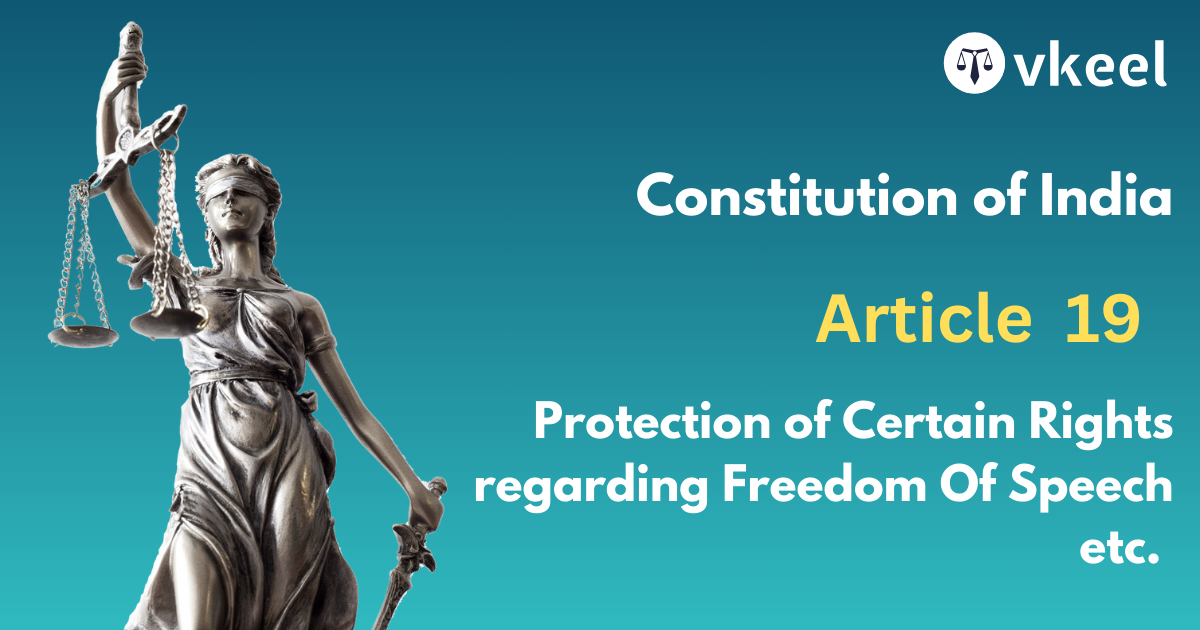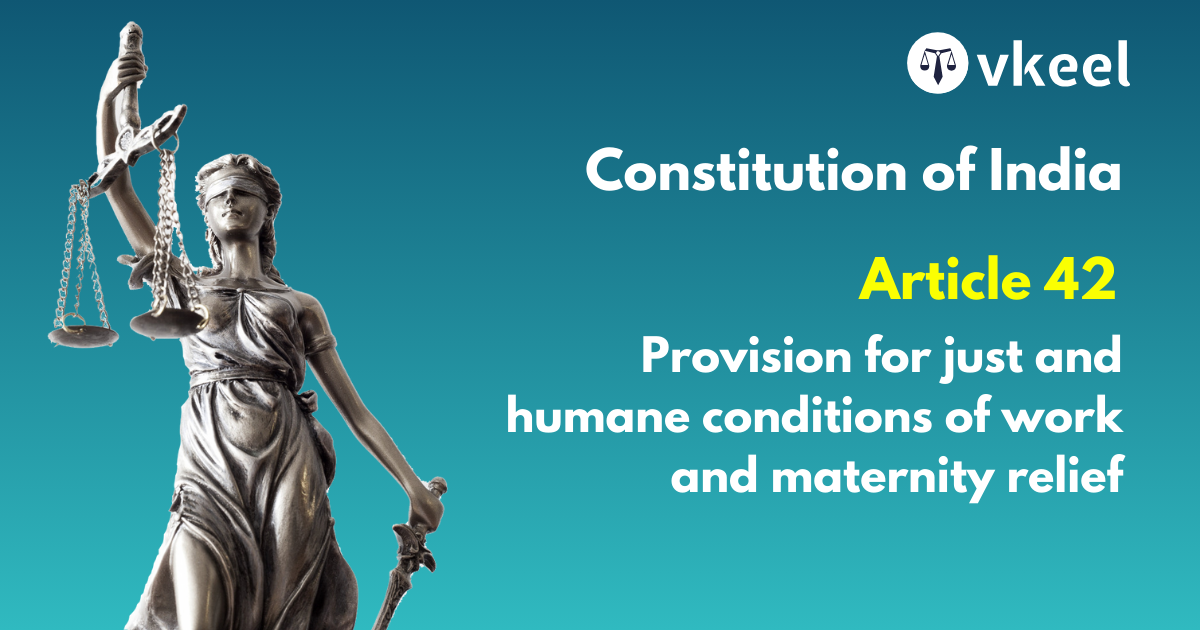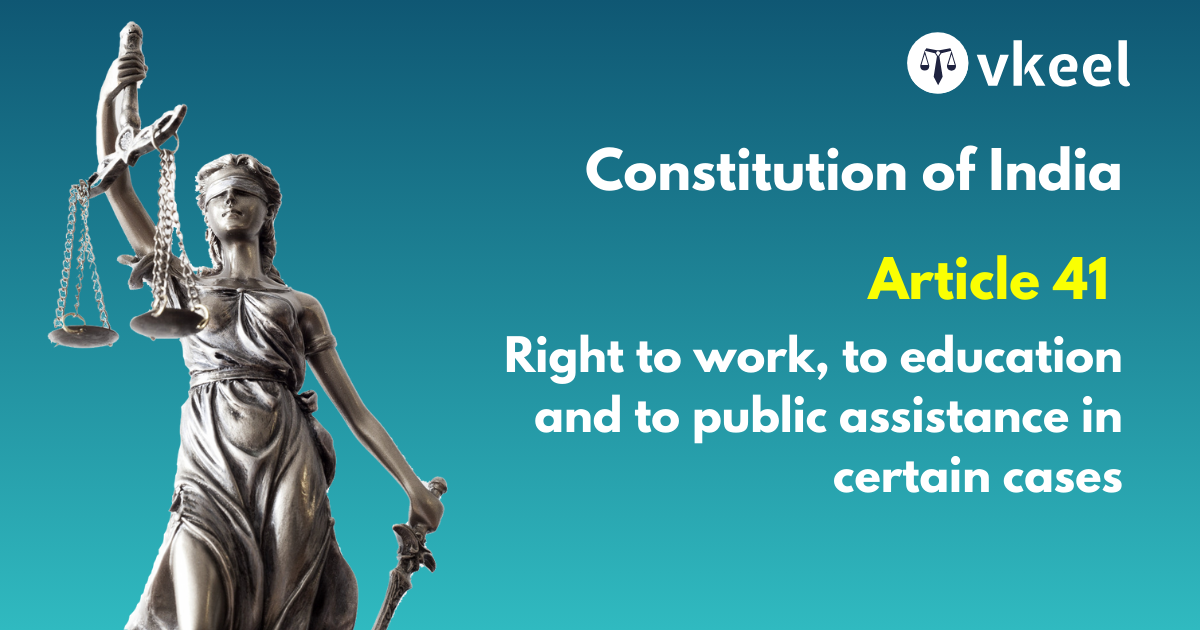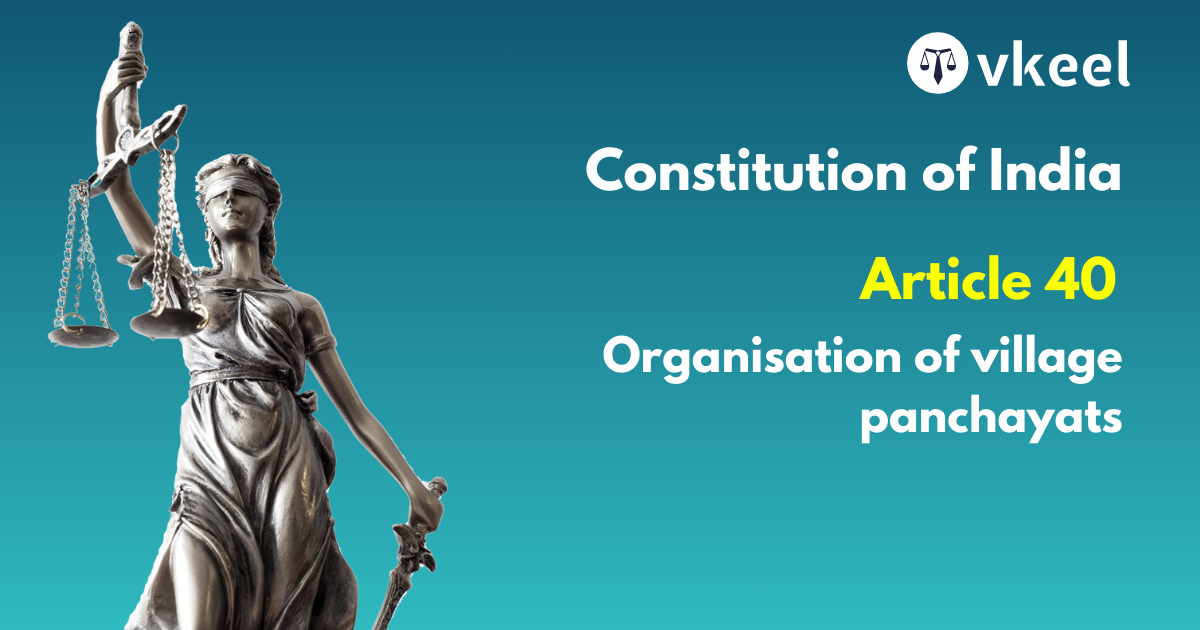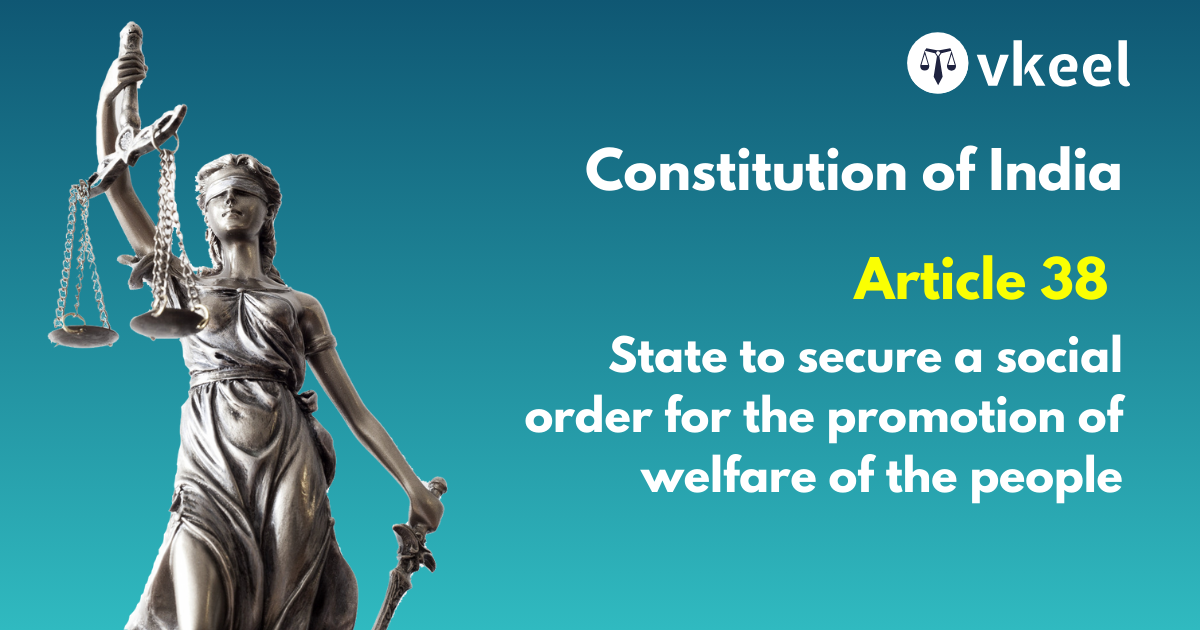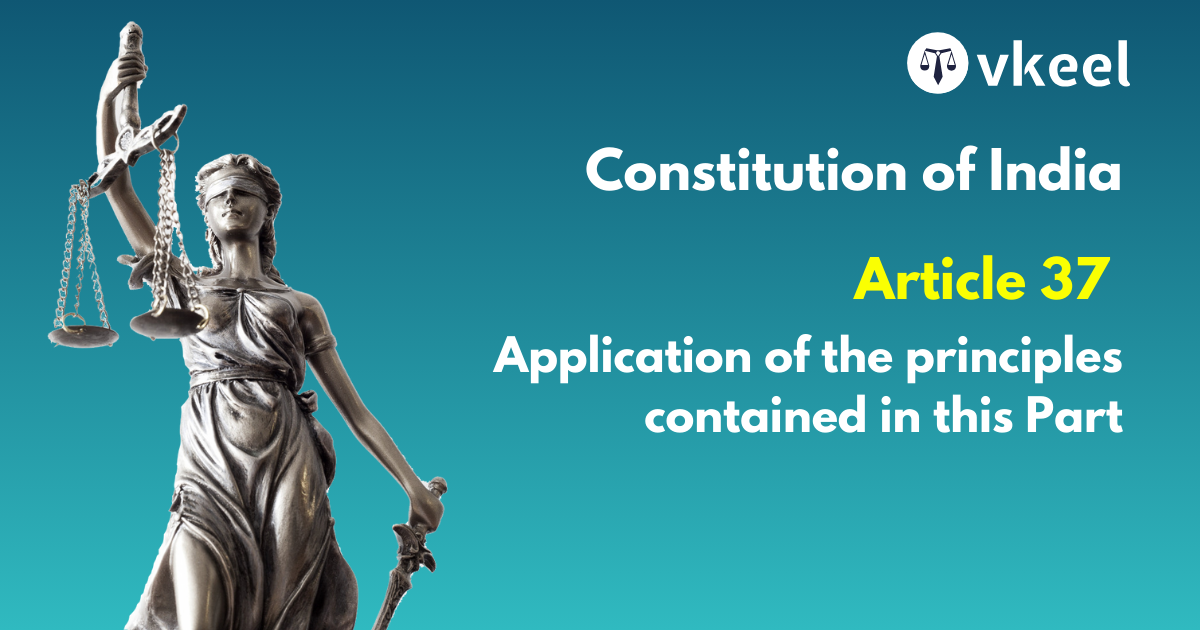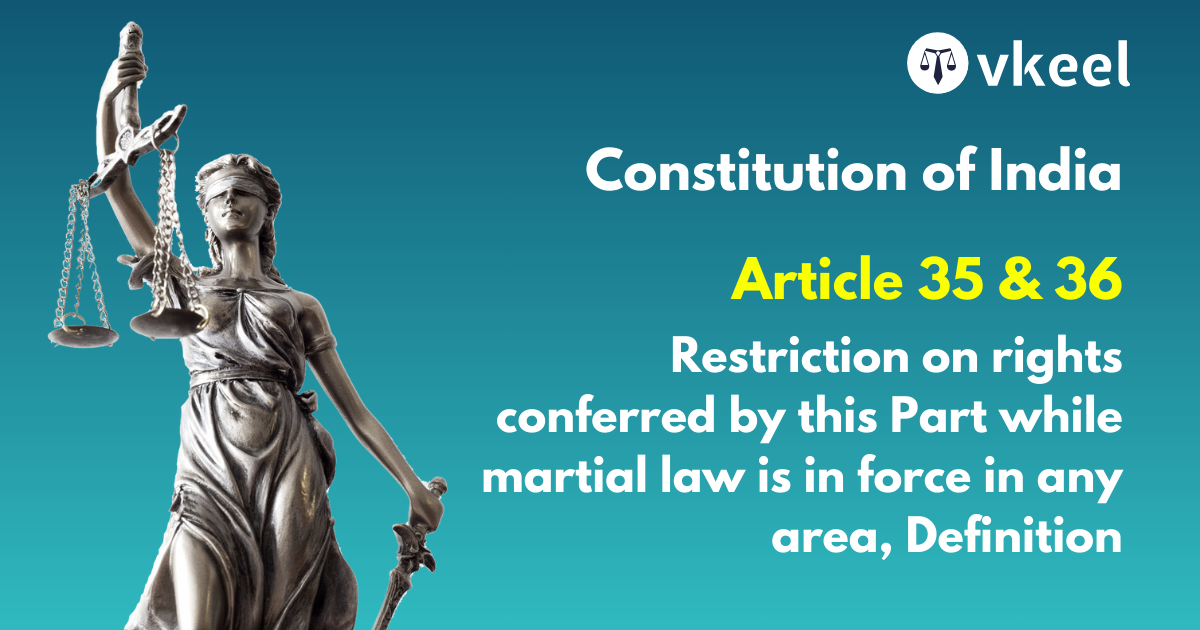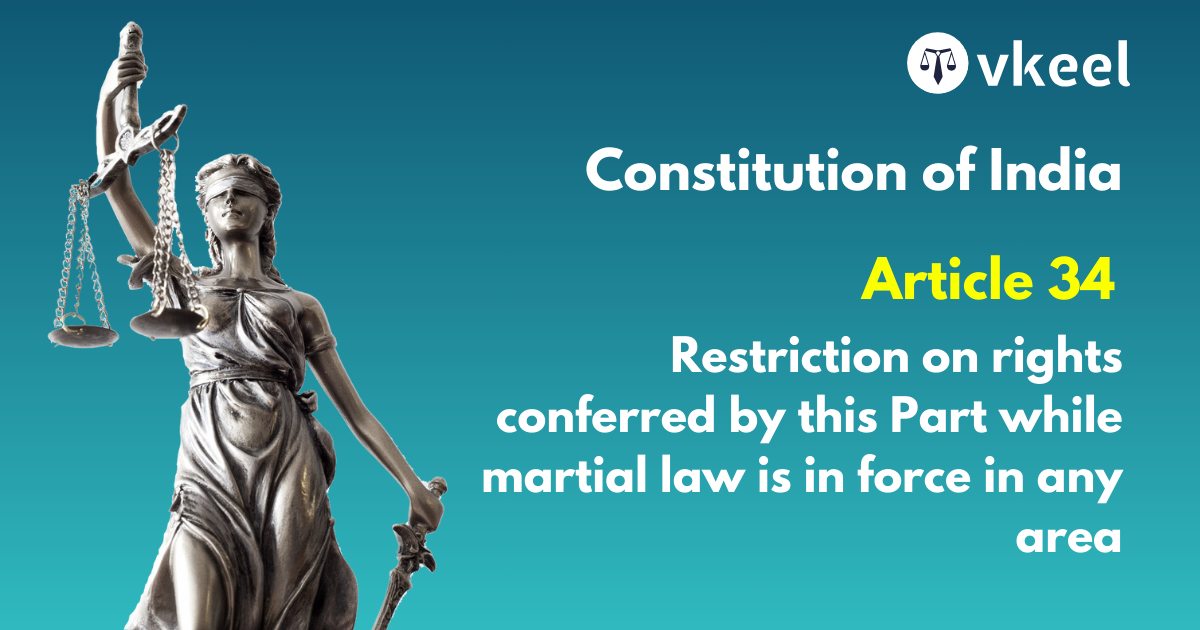Article 19: Protection of Certain Rights regarding Freedom of Speech
By Vanshika Saini
Table of Contents
Introduction
Article 19 of the Indian Constitution guarantees to citizens six basic freedoms of speech and expression, to form associations, of movement throughout the territory of India of residing and settling in any part of India, practicing any profession and carrying on any occupation, trade or business’.
Article 19
(1) All citizens shall have the right—(a) to freedom of speech and expression;
(b) to assemble peaceably and without arms;
(c) to form associations or unions 2 [or co-operative societies];
(d) to move freely throughout the territory of India;
(e) to reside and settle in any part of the territory of India; 1
[and]
(g) to practise any profession, or to carry on any occupation, trade or
business.
[(2) Nothing in sub-clause (a) of clause (1) shall affect the operation of any existing law, or prevent the State from making any law, in so far as such law imposes reasonable restrictions on the exercise of the right conferred by the said sub-clause in the interests of [the sovereignty and integrity of India], the security of the State, friendly relations with foreign States, public order, decency or morality, or in relation to contempt of court, defamation or incitement to an offence.]
(3) Nothing in sub-clause (b) of the said clause shall affect the operation of any existing law in so far as it imposes, or prevent the State from making any law imposing, in the interests of [the sovereignty and integrity of India or] public order, reasonable restrictions on the exercise of the right conferred by the said sub-clause.
(4) Nothing in sub-clause (c) of the said clause shall affect the operation of any existing law in so far as it imposes, or prevent the State from making any law imposing, in the interests of 4 [the sovereignty and integrity of India or] public order or morality, reasonable restrictions on the exercise of the right conferred by the said sub-clause.
(5) Nothing in [sub-clauses (d) and (e)] of the said clause shall affect the operation of any existing law in so far as it imposes, or prevent the State from making any law imposing, reasonable restrictions on the exercise of any of the rights conferred by the said sub-clauses either in the interests of the general public or for the protection of the interests of any Scheduled Tribe.
(6) Nothing in sub-clause (g) of the said clause shall affect the operation of any existing law in so far as it imposes, or prevent the State from making any law imposing, in the interests of the general public, reasonable restrictions on the exercise of the right conferred by the said sub-clause, and, in particular.
Judicial Pronouncements
State of West Bengal vs Subodh Gopal Bose ,
Right to freedom: Broad and basic freedoms inherent in the status of a free citizen of India are embodied in article 19(1). These are protected from invasion by the State. But, the State has the power to regulate these freedoms in public interest which is defined in relation to each of the freedoms by clauses (2) to (6) of article 19.1
Maneka Gandhi vs Union of India 1978
Some of the freedoms conferred by article 19 by their very language and nature are limited in their exercise by geographical considerations. The right to move freely throughout the ‘territory of India’ and the right to reside and settle in any part of the ‘territory of India’ which are contained in clauses (d) and (e) of article 19(1) are of this nature. The two clauses expressly restrict the operation of the rights mentioned therein to the territorial limits of India. Besides, by the very object and nature of those rights, their exercise is limited to Indian territory. Those rights are intended to bring in sharp focus the unity and integrity of the country and its quasi-federal structure. Their drive is directed against the fissiparous regional and sub-regional considerations. The other freedoms which article 19(1) confers are not so restricted by their terms. Nor indeed does the fact that restraints on the freedoms guaranteed by article 19(1) can be imposed under articles 19(2) to 19(6) by the State furnish any clue to that question. The State can undoubtedly impose reasonable restrictions on fundamental freedoms under clauses (2) to (6) of article 19 and those restrictions, generally, have a territorial operation. But the ambit of a freedom can’t be measured by the right of a State to pass laws imposing restrictions on that freedom which, in generality of cases, have a geographical limitation.
Railway Board representing Union of India vs Niranjan Singh 1969
The fact that the citizens of this country have freedom of speech, freedom to assemble peaceably and freedom to form associations or unions does not mean that they can exercise those freedoms in whatever place they please.
M.H. Devendrappa vs Karnataka State Small Industries Development Corporation 1998
The fundamental freedoms enumerated under Article 19 are not necessarily and in all circumstances mutually supportive, although taken together they weave fabric of a free and equal democratic society, e.g., the right to reside and settle in any part country persons from another part of the Exercising the right of speech of can be put jeopardy of the group freely expressing one affects the freedom of movement of another. one association may curtail the freedom to express views against its activities. For example, a person joining an association to promote adoptions cannot express anti adoption views. He may lose his membership. Some restriction on one’s rights may be necessary to protect another’s rights in a given situations Proper exercise of rights may have, implicit in them, certain restrictions. The rights must be harmoniously construed so that they are properly promoted with the minimum of such implied and necessary restrictions.
Bishamber Dayal Chandra Mohan vs State of Uttar Pradesh 1982
Object of Constitution makers was to bring about the economic unity of the country under a federal structure, so that the people could feel that they were members of one nation. One of the means to achieve this object was to guarantee to every citizen the freedom of movement and residence throughout the country by article 19 (1) (d) and (c).
A.K. Gopalan vs State of Madras
It would be illogical, in construing article 19, to attribute to one of the sub-clauses a scope and effect totally different from the scope and effect of the others or to draw a distinction between one right and another in the group. All the rights mentioned in clause (1) are equally essential elements in the liberty of the individual in any civilised and democratic community, and imprisonment operates as an extinction of all of them alike.
Article 19 only deals with certain particular rights which, in their origin and inception, are attributes of the freedom of the person but being of great importance are regarded as specific and independent rights. It does not deal with the freedom of the person as such. Article 19(1)(d) protected a specific aspect of the right of free locomotion, namely, the right to move freely throughout the territory of India which is regarded as a special privilege or right of an Indian citizen and is protected as such. The protection of article 19 is co-terminous with the legal capacity of a citizen to exercise the rights protected thereby, for sub-clauses (a) to (e) and (g) of article 19(1) postulate the freedom of the person which alone can ensure the capacity to exercise the rights protected by those sub-clauses. A citizen who loses the freedom of his person by being lawfully detained, whether as a result of a conviction for an offence or as a result of preventive detention loses his capacity to exercise those rights and, therefore has none of the rights which sub-clauses (a) to (e) and (g) may protect. Article 19 has no bearing on the question of the validity or otherwise of preventive.
Charles Sobraj vs Superintendent Central Jail 1978
The prisoners retain all rights enjoyed by free citizens except those lost necessarily as an incident of confinement and the rights enjoyed by the prisoners under articles 14, 19 and 21, though limited, are not static and will rise to human rights when challenging situations arise. That which merely facilitates the exercise of the fundamental right cannot be respect to national anthem but does not sing it is violative of article 19(1)(a).
People’s Union for Civil Liberties vs Union of India
Freedom of information and right to know: Citizens’ fundamental right to freedom of speech and expression must be construed to include the voters’ right to know the relevant antecedents of the candidates contesting the election. The reason to have right of information with regard to the antecedents of the candidate is that voter can judge and decide in whose favor he should cast his vote. It is voter’s discretion whether to vote in favor of an illiterate or literate candidate. It is his choice whether to elect a candidate against whom criminal cases for serious or non- serious charges were filed but he was acquitted or discharged. He is to consider whether his candidate may or may not have sufficient assets so that he may not be tempted to indulge in unjustified means for accumulating wealth. For assets or liability, the voter may exercise his discretion in favor of a candidate whose liability is minimum and/or there are no over dues of public financial institutions or Government dues. From this information, it would be, to some extent, easy to verify whether unaccounted money is utilized for contesting election and whether a candidate is contesting election for getting rich or after being elected to what extent he became richer. Exposure to public scrutiny is one of the known means for getting clean and less polluted persons to govern the country. A little mana citizen a voter is the master of his vote. He must have necessary information so that he could intelligently decide in favor of a candidate who satisfies his criterion of being elected as M.P. or M.L.A. On occasions, it is stated that we are not having such intelligent voters. This is no excuse. This would be belittling a little citizen/ voter. He himself may be illiterate but still he would have the guts to decide in whose favor he should cast his vote. In any case, for having free and fair election and not to convert democracy into a mobocracy and mockery or a farce, information to voters is the necessity.
Conclusion
One of the significant right under the Constitution of India is the Right to Freedom. There cannot be any democratic setup without freedom. At the same time, giving people absolute freedom would be very dangerous, putting restrictions on people is extremely important, misuse of rights cannot be entertained, thus the State reflects a source of limiting the freedom of certain individuals.
Disclaimer:
The information provided in the article is for general informational purposes only, and is not intended to constitute legal advice or to be relied upon as a substitute for legal advice. Furthermore, any information contained in the article is not guaranteed to be current, complete or accurate. If you require legal advice or representation, you should contact an attorney or law firm directly. We are not responsible for any damages resulting from any reliance on the content of this website.

